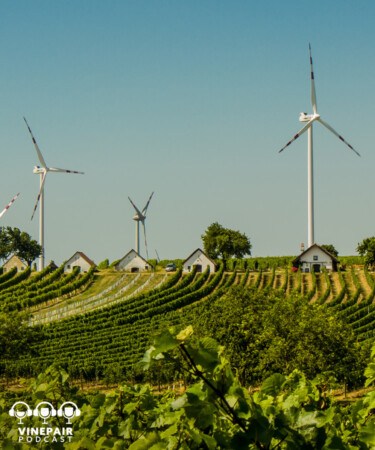From controversy around unnecessarily heavy, thick glass to concerns about vineyard sourcing, the topic of sustainability in wine has been hot lately. Of course, as an industry, wine has always liked to talk about itself as an agricultural product — literally the fruit of the land, so to speak. Meanwhile, in the spirits space, there’s a stronger focus on lifestyle, heritage, and brand history. Most don’t pay any mind to where grains are sourced or how they’re cultivated. Frankly, the discrepancy is rather baffling.
Perhaps the scale at which the two worlds function has something to do with it. After all, precision in spirits generally comes with size, mechanization, and ultimately consistency — especially when it comes to using spirits as ingredients in cocktails. Winemaking, on the other hand, tends to be at its best when it remains as a small, hands-on practice with attention to detail one simply can’t maintain when the operation grows too large.
On this episode of the “VinePair Podcast,” Adam, Joanna, and Zach ponder why sustainability is such a central part of the conversation around wine, from vineyard practices to alternative packaging, while the same considerations almost never come into the broader conversation around spirits. Tune in for more.
Zach is drinking: Upsidedown Wine “The Devil is a Liar”
Joanna is drinking: Kobal Sauvignon Blanc
Adam is drinking: Forlorn Hope Trobairises Picpoul
